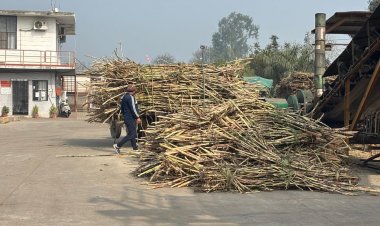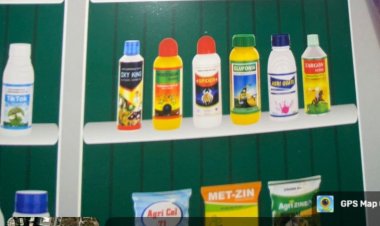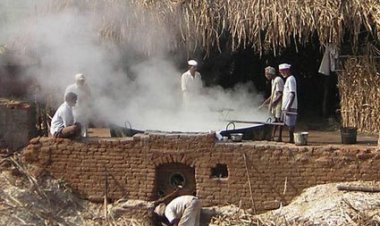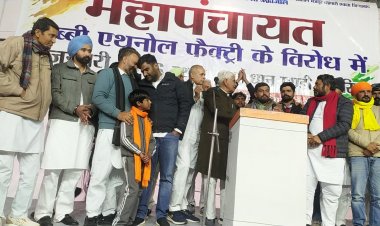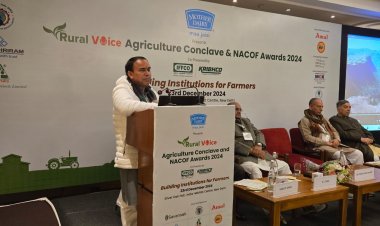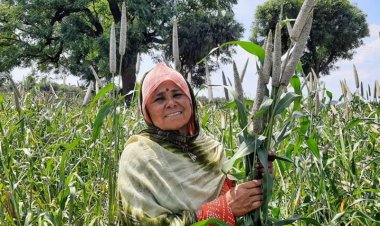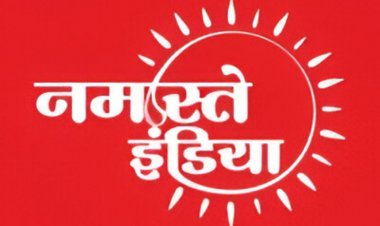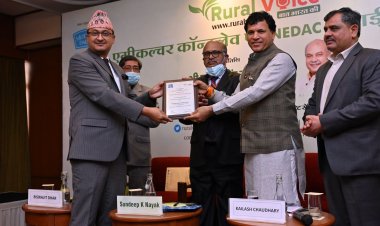Rain damages sesame and vegetable crops along with paddy; Rabi sowing too to get delayed
The crops of arhar, moong and sesame have mainly been damaged due to this rain. Excessive waterlogging in pulse crops will damage them as the plants will wilt. So, farmers should make arrangements for drainage from the fields. They should keep the soil close to the roots in vegetable fields.
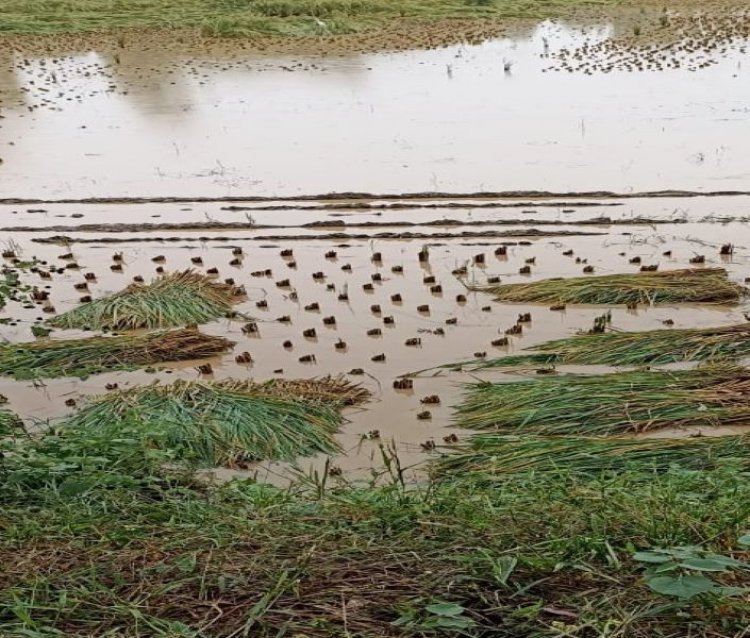
Rain for the last few days has become a cause for trouble for the farmers in Uttar Pradesh (UP). The standing crops of the farmers have been damaged due to the rain. Early paddy, sesame and vegetable crops have been severely damaged. Farmers say that drought had led to empty fields. Later, farmers had sown potatoes, vegetables, oilseeds and black mustard, but incessant rain damaged the crop due to waterlogged fields. The sudden rain led to delayed paddy harvest. This will also lead to delays in the sowing of Rabi crops like mustard, grams and peas, which will have an adverse effect on yields. Thus, the October rain is likely to damage both Kharif and Rabi crops.
Ajay Kumar Singh, a farmer from Sahjanwa in the Gorakhpur district and Director, Brahm Agriculture Bio Energy Farmer Producer Organization (FPO), told Rural Voice that his FPO had sown bottle gourd, cucumber, bitter gourd and brinjal on 60 acres. Rain has led to waterlogged fields. Plants are rotting and falling. Singh said he had cultivated paddy on about 25 acres, in which paddy variety Sarju-52 was planted on about 10 acres. Mustard was to be sown after paddy harvest. But this rain will lead to delays in paddy harvest. The fields have become waterlogged. So, it is not possible to harvest the crop with a combine machine. If labourers reap the crops, the cost will go up.
Virendra Kumar Chaurasia, a farmer from the Maharajganj district, told Rural Voice that he had cultivated the crops of bottle gourd and tomato on 3.5 acres, in which he had incurred a cost of 1.5 lakh rupees. But the sudden rain had submerged the vegetable crops and they were getting spoilt.
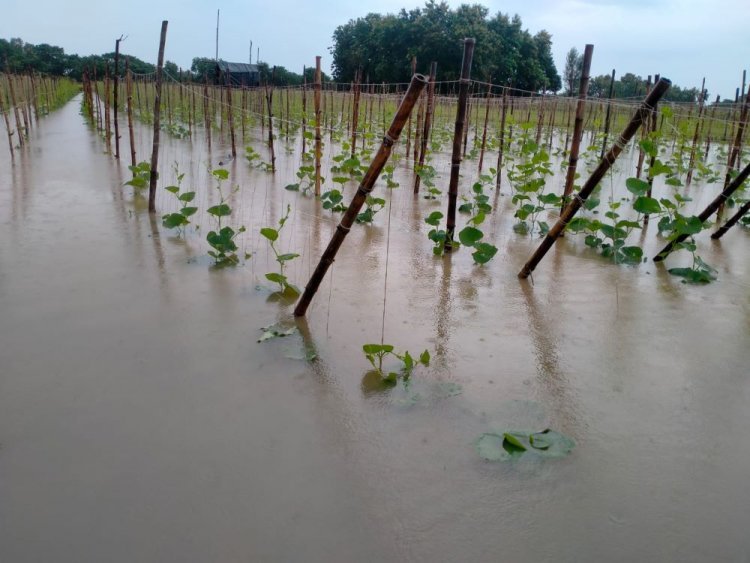
Pravin Kumar Rao, a farmer from the Kharihani village in the Azamgarh district, said that pumping sets had to be used to water the paddy fields due to the drought this year. But this rain will lead to a delay in paddy harvest. Pravin said, “I had never imagined that there would be so much rain in October.”
Raghunath Singh, a farmer from the Kenda Kalyanpur village of Kanpur, said that he had cultivated the Golden Basmati crop on 1.5 acres and had kept it in the fields after harvest. The fields have become waterlogged due to the rain and pose a threat to the harvested crop. Singh said that the paddy crop of most of the farmers in his area would have been ready in 10-15 days, but rain would lead to a delay in harvesting. He said that rain had damaged the crops of sesame, groundnuts and garlic, too. Several farmers have sown black mustard and potato. Waterlogged fields have damaged these. Preparations had been made to sow potatoes in some of the fields, but heavy rain has shattered the farmers’ hopes.
Pritam Singh. A farmer from the Nekpur village in the Bulandshahr district who is the Director of Bio Energy Farmers Producer Co. Ltd, said, “Our FPO farmer members mainly grow Basmati.” He said, “The rainfall in our area was 15mm, 40mm and 70mm on October 7, 8 and 9 respectively.” He said that the data had been gathered by the rain gauge installed in his area. This rain had fully drenched the early Basmati crop that had already been reaped. Up to 60 per cent of the crops of late-maturing Basmati varieties have fallen in the fields. Which has affected the farmers much.
Amarnath Khatana, a farmer from the Jandhedi village in Saharanpur district, said to Rural Voice, “The early paddy crop has been reaped in our area, but the sowing of mustard will now be delayed because of the excessive moisture in the fields due to this rain. The normal paddy crop is standing (in the fields). Their reaping is being delayed due to the moisture in the fields. This in turn will lead to a delay in the sowing of the Rabi crops.”
Advice from experts
Speaking to Rural Voice in this regard, Dr LC Verma, head of the Krishi Vigyan Kendra (KVK) at Mau, said that this sudden rain would lead to a delay in the harvest of the paddy crop, which in turn would lead to a delay in the sowing of the Rabi crops, especially black mustard, mustard and potato. Waterlogging in the fields will make it difficult to harvest paddy with a combine. The paddy grains break more due to moisture. Dr Verma said that primarily arhar, moong and sesame crops had been damaged due to this rain. Excessive waterlogging in pulse crops will damage them as the plants will wilt. So, farmers should make arrangements for drainage from the fields.
Dr RP Singh, an agricultural scientist at the Azamgarh KVK, said that this rain had led to an increase in the loss of vegetable crops. Farmers should make drains in the vegetable fields to draw water out. And they should keep the soil close to the roots in vegetable fields. Dr Singh said that if the wheat sowing got delayed due to the late paddy harvest and the rain, farmers should, keeping in mind the heat wave last year, sow the short-duration wheat varieties developed by the wheat research centre at Karnal.



 Join the RuralVoice whatsapp group
Join the RuralVoice whatsapp group

















